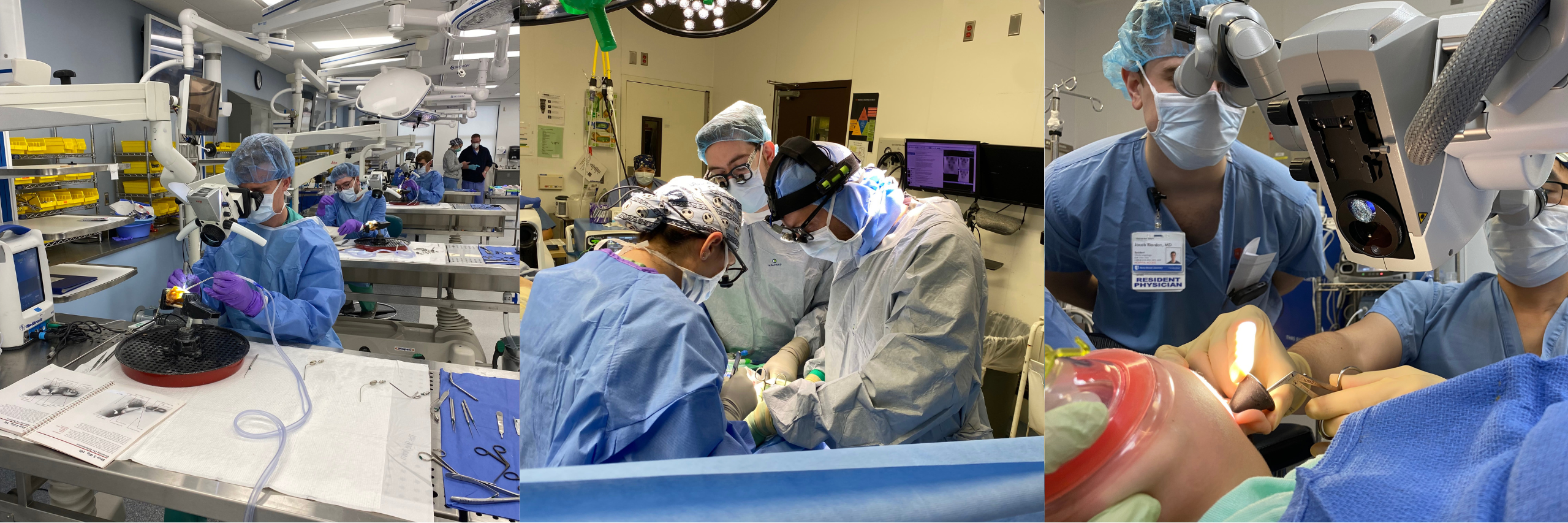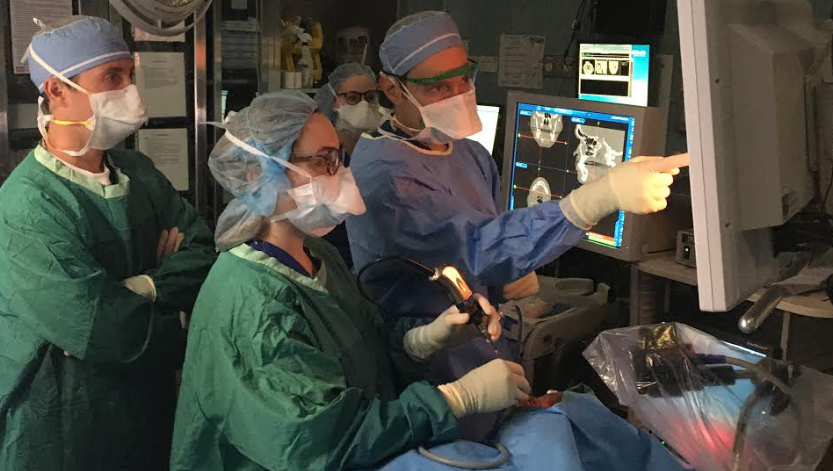Discovering the Area of Otolaryngology: What to Expect When You Consult an ENT
Otolaryngology, generally described as ENT, includes the medical diagnosis and treatment of ear, nose, and throat conditions. For those experiencing relevant issues, speaking with an ENT professional can supply clarity and alleviation. Recognizing what to expect during such examinations is vital for effective communication and treatment. This review will certainly outline vital aspects of the ENT experience, including usual reasons for visits and the processes entailed in diagnosis and treatment.

Understanding Otolaryngology: A Summary
Otolaryngology, commonly referred to as ENT (Throat, ear, and nose) medication, is a specific branch of medicine that concentrates on the medical diagnosis and therapy of problems influencing these vital areas of the body. This area incorporates a large range of disorders, including those related to hearing, balance, breathing function, and speech. Otolaryngologists are trained to handle both medical and surgical therapies, using sophisticated techniques and modern technologies. Their proficiency expands beyond typical ailments, addressing concerns such as allergies, sinus infections, and hearing loss. Additionally, they play a critical duty in the administration of head and neck cancers, giving detailed care customized to individual person demands. In general, otolaryngology continues to be vital for maintaining health and top quality of life in affected individuals.
Typical Factors to See an ENT Professional
Several people look for the competence of an ENT expert for a range of factors, mirroring the diverse nature of conditions that influence the nose, ear, and throat. Common issues include chronic sinusitis, which usually leads to persistent nasal blockage and face discomfort. Allergic reactions and their connected signs, such as sneezing and itching, also prompt check outs to these professionals (Voice). Hearing loss, whether abrupt or progressive, is another significant factor for appointment. Furthermore, people might look for assessment for throat disorders, including persistent hoarseness or ingesting problems. Sleep apnea, characterized by interrupted breathing during sleep, is regularly attended to by ENT specialists as well. Each of these problems highlights the value of specialized treatment in taking care of complex ENT-related wellness concerns
Getting ready for Your ENT Visit
When preparing for an ENT consultation, it is necessary to collect pertinent info and consider any kind of particular issues. People should put together an in-depth case history, consisting of previous ear, nose, or throat problems, surgical treatments, and present drugs. Recording symptoms-- such as seriousness, frequency, and period-- can supply beneficial understandings for the ENT specialist. In addition, people ought to prepare a listing of questions they want to ask, making certain that all concerns are attended to throughout the see. Bringing along any kind of relevant clinical records or test outcomes can further aid the ENT in recognizing the patient's condition. Ultimately, people ought to confirm their consultation information, consisting of time, area, and day, to decrease any final complication. Appropriate preparation can boost the effectiveness of the consultation and lead to much better outcomes.
What to Anticipate Throughout the Consultation
As the assessment begins, the client can expect to involve in an extensive conversation with the ENT expert concerning their signs and symptoms and case history. The professional will inquire concerning the period, frequency, and extent of symptoms such as hearing loss, nasal blockage, or aching throat. Additionally, the client's previous clinical problems, medicines, and any type of appropriate family members background will certainly be evaluated, assisting the expert in forming a full understanding of the individual's health. The ENT might also ask concerning way of life factors, such as direct exposure to toxic irritants or irritants. This open dialogue develops a foundation for the consultation, ensuring that the individual's issues are addressed and setting the phase for any needed assessments or referrals for therapy.
Analysis Examinations and Treatments in Otolaryngology
A variety of analysis tests and procedures are essential in otolaryngology to precisely examine and identify problems impacting the ear, nose, and throat. Usual examinations include audiometry, which determines hearing function, and tympanometry, evaluating center ear stress. Nasal endoscopy allows visualization of the nasal passages and sinuses, while laryngoscopy examines the throat and vocal cables. Imaging strategies, such as CT scans and MRIs, provide more info comprehensive sights of head and neck frameworks. Allergy testing might also be carried out to determine triggers for sinus or respiratory system concerns. These analysis devices enable ENT specialists to establish a thorough understanding of people' conditions, making sure customized and efficient administration plans. Appropriate medical diagnosis is vital for effective therapy end results in otolaryngology.
Therapy Alternatives Used by ENT Specialists
ENT experts use a range of therapy choices tailored to address details problems impacting the nose, throat, and ear. These treatments vary from traditional techniques, such as medication and way of living alterations, to even more intrusive treatments. For circumstances, allergic reactions might be taken care of with antihistamines or immunotherapy, while persistent sinusitis may require nasal corticosteroids or sinus surgical treatment. For hearing loss, ENT experts commonly suggest listening devices or medical treatments like cochlear implants. In situations of throat disorders, alternatives can include speech therapy or operations to remove blockages. Furthermore, they may supply assistance for handling rest apnea, consisting of the usage of CPAP gadgets or surgical treatments. Generally, the goal is to boost clients' quality of life through individualized care and effective treatment methods.
When to Seek Follow-Up Treatment With an ENT
When to look for follow-up treatment with an ENT specialist is important for taking care of ongoing symptoms or difficulties associated to nose, throat, and ear problems, acknowledging. Individuals ought to think about scheduling a follow-up visit if signs and symptoms linger despite first treatment, such as chronic ear discomfort, nasal congestion, or throat discomfort. Changes in hearing, balance problems, or uncommon nasal discharge might additionally require additional examination. In addition, if an individual experiences adverse effects from prescribed drugs or has actually undergone an operation, follow-up care is important to monitor recovery and deal with any type of problems. Timely appointments can guarantee reliable administration of conditions, avoid possible difficulties, and provide satisfaction pertaining to one's wellness. Seeking follow-up care advertises positive health and wellness monitoring in otolaryngology.
Regularly Asked Inquiries

What Certifications Should I Seek in an ENT Expert?
When seeking an ENT specialist, one should search for board accreditation, relevant experience, and solid individual evaluations. In addition, effective interaction abilities and a compassionate method can greatly boost the general therapy experience.
Just how Do I Pick the Right ENT for My Needs?
Selecting the ideal ENT specialist involves evaluating their credentials, experience, and individual testimonials (Sinus). It is necessary to ponder their interaction style and technique to therapy, guaranteeing they line up with the person's specific wellness demands and preferences
Exist Any Kind Of Dangers Associated With ENT Procedures?
The risks connected with ENT treatments might include infection, bleeding, anesthetic complications, and potential damages to bordering frameworks. Individuals need to talk about these dangers with their physician to recognize individual issues and warranty educated decisions.
How Can I Manage Anxiousness Prior To My ENT Consultation?
To manage stress and anxiety before an appointment, individuals can practice deep breathing exercises, picture positive end results, prepare concerns ahead of time, and look for support from close friends or family, fostering a sense of reassurance and peace.
What Should I Do if I Experience Adverse Effects From Therapy?
The individual must promptly report them to their medical care provider if side effects from treatment happen. Adjustments to treatment or additional treatments might be essential to guarantee safety and effectiveness in handling their condition - ENT Doctor. As the examination starts, the patient can expect to involve in a comprehensive conversation with the ENT expert about their signs and clinical history. These analysis devices enable ENT experts to create a thorough understanding of individuals' conditions, making sure customized and efficient monitoring plans. ENT professionals use a variety of therapy alternatives tailored to attend to details conditions affecting the throat, ear, and nose. When looking for an ENT professional, one should look for board accreditation, appropriate experience, and solid client reviews. Selecting the best ENT expert includes reviewing their credentials, experience, and individual testimonials
Comments on “Is ENT Surgery the Right Option for Sleep Disorders?”